
Vegan or a vegetarian? Pondering how to full-fill your daily protein requirement, being vegan, especially when you require high protein for your fitness regime? Since plant proteins are the only sources of vegan protein, it doesn’t mean you cannot fulfill your daily protein requirements.
Certain foods will not only help you in maintaining your body weight but will also help you reach your weight loss target easily.
The prime concern for you is how to replenish your diet with adequate protein and not acquire calories and fat simultaneously. The sources rich in protein are often accompanied by fats too. Resultantly, the purpose of your sweating in the gym goes futile. For effective workouts install these free workout apps of 2021.
Proteins are building blocks of your body
First, let’s understand what is protein and why it is essential for our body. Protein is one of the most important nutrients of a balanced diet. It plays a crucial role in maintaining your muscles and tissues.
- It is a vital macronutrient for maintaining and repairing tissues, cells, and organs.
- When you eat protein, your body breaks down the protein into smaller units called amino acids and absorbs it.
- These amino acids are used for many important functions in the body like growth, repair of muscle, cells, and skin.
How does proteins help in weight management
A high protein diet can help you:
- Build lean muscle when you combine it with your exercise regime.
- Lean muscle helps you to burn more calories throughout the day, due to which it can help you to lose weight.
- The digestion of protein takes longer as compared to carbohydrates. Therefore, consuming a protein-rich diet can make you feel satiated (feeling of fullness). Consequently, you are less likely to munch unnecessarily. This will also help you manage your weight.
Despite Protein being present in the food, you eat daily; you fall short of consuming the daily recommended quantity of it.
Check Out The Video Below to know the sources of Vegan Protein
The Daily Recommended Protein in g/kg of your weight
- If you are a non-athlete, in good health, and are sedentary, then you are at a lower end of the range and you require approx. 0.8 g of protein per kg of your body weight.
- If you are a moderate exerciser, go to the gym 3 to 5 times a week, or involved in activities like brisk walking, cycling, and swimming, then you should aim to consume at least 1.2 to 1.4 g of protein per kg of your body weight.
- If you are involved in intense weight or endurance training, then you should use a higher number between 1.2 to 2.0 g of protein per kg of your body weight. The same range applies if you are a pregnant woman, under stress, suffering from illness, and want a speedy recovery.
How to calculate your daily protein requirements in grams (g).
Let’s understand this with an example:
If you are a person who is a moderate exerciser,
And say, your body weight is 70 kg,
Then, you require 70 kg x 1.2 = 84 g of protein per day.
Now, to consume 85 g (approx.) of protein per day, distribute your protein intake into 3 to 4 separate meals at regular intervals. This will sufficiently fuel your muscles and cells for proper functioning.
Sources of Vegan protein
Vegan, vegetarian, or non-vegetarian you must include protein-rich food in your diet. Plant-based protein typically contains more fiber and less saturated fat to keep you healthy. Not only that, a rich protein diet keeps your hair healthy and controls hair fall.
Fortunately, certain foods can provide solid protein for vegans.
List of vegan protein sources
- Kidney Beans
- Chickpeas
- Tofu
- Soy Chunks
- Chia Seeds
- Guava
- Green Peas
- Lentils
- Peanut Butter
- Nuts
- Spinach
- Brussels
1. Kidney beans
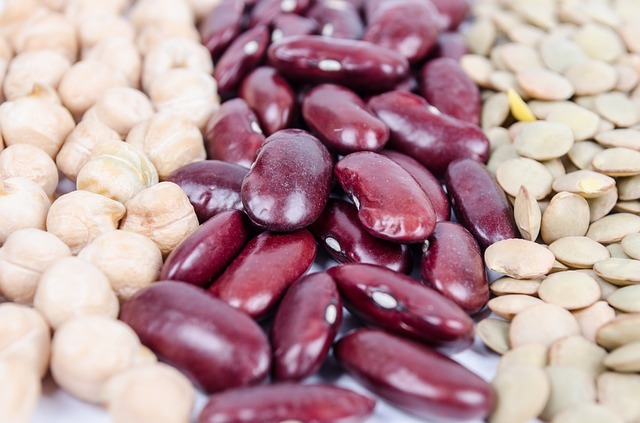
Beans are not only rich in protein and nutrients but also healthy for your heart, brain, and muscles. They are nutrient-packed and digest slowly to keep you fuller for a long time. Beans are one of the excellent sources of vegan protein.
Simply add boiled kidney beans and a squeeze of lemon to your salad to make it more delicious and nutritious.
Nutritional value: 1 cup of kidney beans can provide you around 10-15 g of protein.
2. Chickpeas
Chickpeas are yet another most versatile plant-based high protein food for vegans and fiber as well. Chickpeas are popular in Asian cuisines and are often relished as curry.
If you are looking for a less spicy version, simply add it boiled to your salad and make it more power-packed and tasty.
Nutritional value: 1 cup of chickpeas can provide you almost 15 g of protein.
3. Tofu
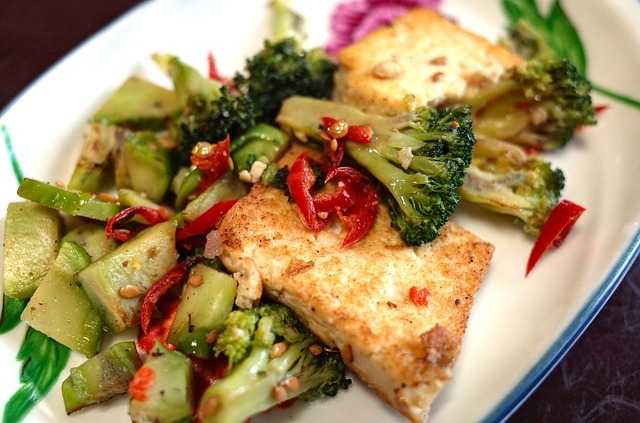
Tofu, made from soy milk, is an excellent source of vegan protein. Moreover, somewhat similar in looks and texture, you can easily replace Paneer (Cottage Cheese) with Tofu if you are a Vegan.
Tossing into salads, sandwiches, veggie bowls, will make your food more nutritious. Stir-fried or grilled tofu can be an irresistible mouth-watering platter for you.
Tofu is an excellent non-dairy source of calcium too.
Nutritional Value: 4-oz. of serving of tofu provides you with 10 g (approx.) of protein.
4. Soya Chunks
If you are a Vegan, focus on plant-based protein goes a long way in ensuring you stay healthy. Fortunately, soy chunks can be one of the best options due to their high content of plant protein.
You can add soya chunks in the form of soya rice or pulao, soya Manchurian or simply stir-fried soya nuggets to your diet.
Nutritional value: A 100 gram serving of soya chunks provides you with approx. 52.4 g of protein.
5. Chia Seeds
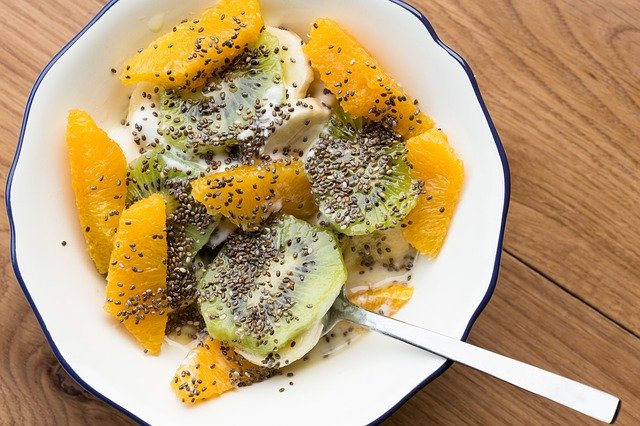
Chia seeds are tiny round seeds, a member of the mint family, which are often black or white.
Chia seeds have a jelly-like texture, when soaked in water, and can absorb liquid almost 10 to 12 times their weight. Make sure you soak it before eating as chia seeds may expand and increase your risk of choking.
You can use chia seeds raw as a topping for fruit salads, porridge, oatmeal, or smoothies.
Nutritional value: Two tablespoons of chia seeds provide you about 4g of protein other than being a crucial source of omega-3s, iron, calcium, magnesium, and selenium.
6. Guava
You can enjoy having guava as a snack or add it to your fruit salad, to get as much as 4.5 g of protein per cup with 9 g of fiber and only 112 calories.
It is not only rich in protein and fiber, it is super rich in vitamin C more than found in oranges.
7. Green Peas
Green peas are consumed as a vegetable, but it belongs to the legume family, consisting of plants that produce pods with seeds inside. Green peas are one of the best plant-based sources of vegan protein and contain a high amount of fiber.
Green peas are high in complex carbohydrates, but the calorie content is fairly low, with only 62 calories per 1/2-cup (150g) serving.
You can cook green peas along with other vegetables or simply boil it to have it.
Nutritional value: 1 cup of green peas can nourish you with 8g of protein.
8. Lentils
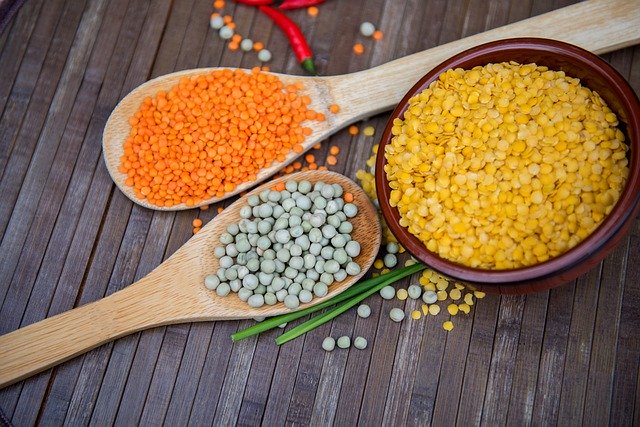
Lentils are a powerhouse when it comes to plant-based protein. You can find it in different varieties – pigeon pea, Bengal gram, green gram, black gram, and more.
As vegans, you can include it in various forms in your diet. You can blend it with a curry base or you can simply have it boiled along with a bit of salt and spices.
Nutritional value: 1 cup of a cooked lentil can provide you about 18g of protein depending upon the variety of it.
9. Peanut Butter
Peanut butter provides a solid dose of protein and healthy fats, but you should not consume it too much as it can add to your waist. A standard 2 tablespoon serving should be sufficient for you to get a decent amount of protein for your nutritional needs.
Always prefer to opt for no sugar added variety with no hydrogenated oils to get the maximum benefit out of it.
Nutritional value: 2 tablespoons can provide you about 7g of protein.
10. Nuts
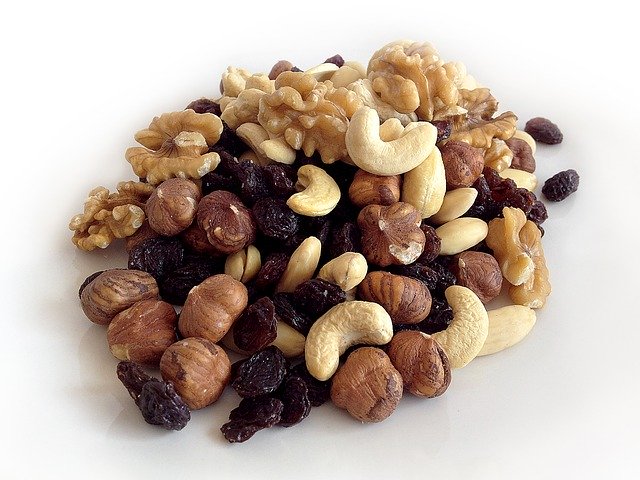
A handful of nuts and seeds are super-foods that will ensure an ample amount of protein, fiber, and energy to get going throughout the day.
Make sure you do not have it more than a handful as they are rich in fats too, and having it more will not let you reach your weight loss target.
Protein content in some nuts and seeds
- Almonds – 3g of protein for every six almonds
- Walnuts – 3g of protein for every three whole walnuts
- Pistachios – over 1g of protein over 10 pistachios
- Cashew nuts – 3g per 10 cashew nuts
- Pumpkin seeds – 4g per tablespoon
- Ground linseed – 3g per tablespoon
- Hemp seeds – 5g per tablespoon
11. Spinach and Brussels
Vegetables like spinach, Brussels, contain decent levels of protein to fulfill a significant portion of your daily protein needs. Not to mention, greens are rich in vitamins, minerals, antioxidants, full of fiber, and low in calories.
Try adding cooked spinach to your pasta and curry to make it irresistible.
Nutritional value: ½ a cup cooked spinach and Brussels can provide you about 4g and 3g of protein respectively.
Sources of Protein for Vegetarians
If you are a vegetarian, apart from these rich protein sources, you can meet your protein requirements from these too:
Curd/ Yogurt
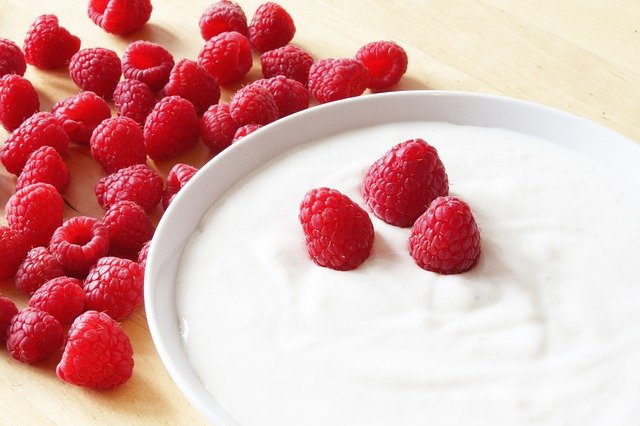
Curd, being probiotic food, is loaded with healthy bacteria and helps in keeping your gut healthy. Besides, curd is also an excellent source of calcium and protein which ensures healthy bones and muscles.
Choose to use plain curd made with skimmed milk to keep the fat content low.
Serve yourself curd with diced fruits and a bit of honey, if you want to make it more delicious.
Nutritional value: 1 cup of curd can nourish you with 7g (approx.) of protein.
Milk
Milk is considered a complete food in itself. Apart from being a rich source of protein, milk is also rich in calcium. Thus, ensures substantial bone health, strong teeth, and a healthy immune system.
Add a glass full of skimmed milk in your breakfast or add it with your cereals loaded with fruits to make it fulfilling and healthier.
Nutritional value: 1 glass of milk can provide you about 8 g of protein.
Cottage Cheese (Paneer)
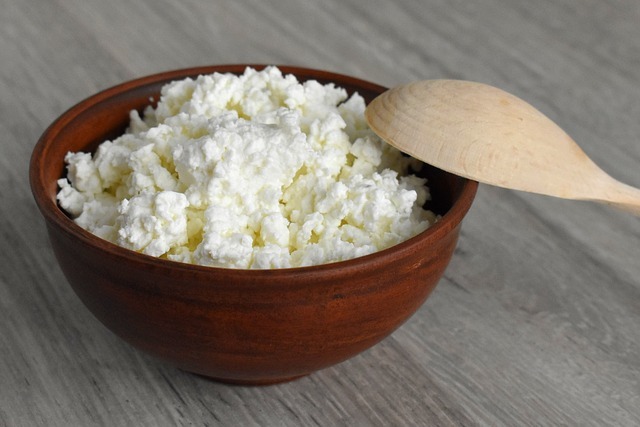
Cottage cheese or Paneer is a slow-digesting dairy protein, keeps you fuller for longer and helps burn fat. Not only that, but it also offers you a considerable amount of calcium too.
Relish it as grilled or sautéed with vegetables, like curry or snack as it is, to enjoy the benefits of protein.
Nutritional value: ½ a cup serving will provide you with 14 g of protein.
Should you take Protein supplements?
Whether you are a vegan or vegetarian, and love to workout in the gym, you can get the daily recommended amount of protein through food alone.
Protein powders and supplements are convenient but are not necessary; even if you are more than a moderate exerciser or under an intense weight training regime.
You should take protein supplements only if you have an acute deficiency of protein, and advised by your doctor or dietician.
Krishna is a Management graduate in Human Resource. She is an avid reader, knowledge seeker, and an adoring mother of two lovely kids.